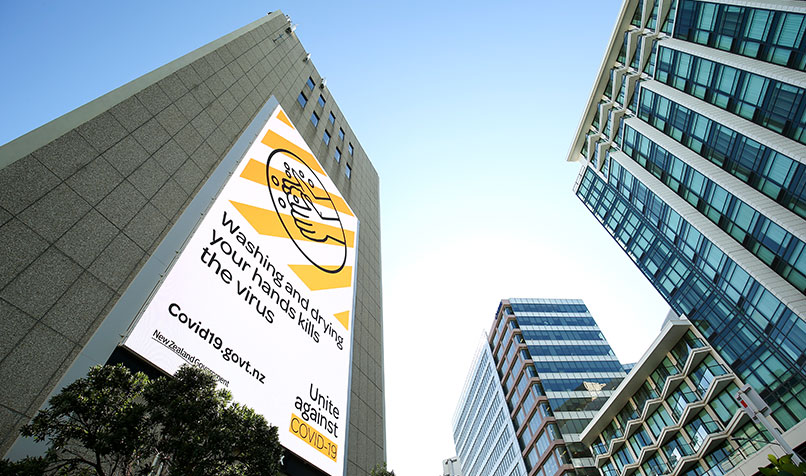Loading component...
At a glance
- New legislation has provided struggling companies some relief from liability should they become insolvent.
- The legislation is applicable until 25 September, and it has helped guard companies during adverse business conditions.
- However, there are concerns that easing insolvency laws could have consequences such as mounting levels of debt outstanding at the time a company enters insolvency.
By Zilla Efrat
Under normal circumstances, directors become personally liable if their company incurs debt when there are reasonable grounds to suspect the company is insolvent or could become insolvent.
However, new Australian legislation has given directors some breathing space from this for a six-month period, which started on 25 March and ends on 25 September, if debts are incurred in “the ordinary course of business” during the COVID-19 pandemic.
“Given the extraordinary circumstances, including how quickly the situation deteriorated for many businesses, relaxing what are comparatively onerous insolvent trading provisions made sense,” says Jason Preston, a partner at advisory and restructuring firm McGrathNicol.
“The approach seems to have worked, with the number of insolvency appointments materially down relative to the same period last year, despite the adverse business conditions.”
Marcus Ayres, managing director, global restructuring advisory, at Duff & Phelps, says the changes have allowed directors to focus their energies on determining their zero revenue models, how to mothball effectively and what their cash position would be, rather than the technicalities of insolvency “which are nothing more than a retrospective performed by a liquidator dismembering the carcass”.
A red herring?
That said, some worry that the changes could have unintended consequences.
Rather than continuing to incur losses funded by their creditors with no personal risk, Preston says insolvent trading provisions focus directors’ minds on balancing the risks they take at the expense of creditors with their personal exposures.
“It follows that one of the unintended consequences of the temporary relaxation of the laws may be larger levels of debt being outstanding at the time a company enters into insolvency. Companies may also be less willing to provide credit to their clients in a business environment where profitability is challenged and where directors are less personally exposed to debts that companies in their control incur.”
A temporary relaxation of the laws could also result in suppliers requiring more frequent upfront payment, rather than extending customary credit terms.
Michael Lalji, practice leader and senior solicitor at Shine Lawyers, adds: “In this difficult period, it may also be tempting for directors to divert company assets to themselves, their relatives or related companies, resulting in an increase in claims by liquidators for breach of directors’ duties or voidable transactions.”
Lalji emphasises the importance of clear communication around responsibilities, and understanding that the moratorium on insolvent trading does not mitigate the role of directors in making decisions that have the best interests of the company in mind.
"What I am most anxious about, however, is that the relaxation of these laws will cause some small and medium-sized enterprises to get themselves into a much worse position."
“I also expect there to be a substantial number of directors who unwittingly continue to allow their companies to trade while insolvent after the moratorium period, only to be faced with an insolvent trading claim when a liquidator is finally appointed”.
“Finally, directors may not turn their minds to the substantial personal liabilities that are accruing under personal guarantees that may have been given to creditors a long time ago.”
Ayres believes the relaxation is a “red herring”.
“There are already very ample laws in place to allow a director to trade in a company while it’s insolvent under the safe harbour provisions. Critically, these require directors to get appropriate independent advice,” Ayres says.
“What I fear has happened is that the safeguards installed by legislators have been quickly pushed to the side without thinking.
“In turn, it is absolutely the case that many businesses haven’t taken the right advice [or any advice], and may have actually exacerbated the position not only of the company, its employees and creditors, but also for themselves personally.
“Large corporates will generally get advice. What I am most anxious about, however, is that the relaxation of these laws will cause some small and medium-sized enterprises [SMEs] to get themselves into a much worse position.
“SME proprietors often use their family homes as collateral, and a continuation of losses will cause some to exacerbate their position and put their own family’s financial position in very significant financial jeopardy.”
No phoenix rising
Preston believes that, despite the temporary relaxation of the laws, most directors will remain focused on solvency, and will balance the interests of all stakeholders appropriately.
“The introduction of a safe harbour defence had already helped to shift the balance of risk away from directors, providing a defence to insolvent trading if they are meeting certain criteria and, in particular, have a plan to achieve a better outcome for the company than an immediate insolvency,” he says.
“While there may be a small cohort of directors who are willing to cause their companies to incur debts they never have any intention of paying, only to phoenix into a new company, I doubt the temporary relaxation of insolvent trading laws will cause directors who previously weren’t behaving that way to suddenly change their behaviour”.
“It is also worth noting that, while the insolvent trading provisions have been temporarily relaxed, they have not been removed altogether, and directors continue to have fiduciary duties.”
Lalji agrees: “Generally, directors want to do the right thing for their clients and creditors, and I think most directors would see these changes as providing them with opportunities to try to get through the business impacts of COVID-19 and not as an opportunity to exploit the temporary change in the law for personal gain.”
Lessons from further afield
Australia and New Zealand are not alone in providing directors with some relief when tackling the current unprecedented trading conditions.
The UK, for example, has temporarily suspended wrongful trading rules to allow directors to continue trading through the pandemic without the threat of personal liability should their companies become insolvent. Germany has also suspended the obligation to file for insolvency until 30 September 2020, unless the insolvency is not due to the pandemic or a debt cannot be eliminated.
Similarly, Singapore has offered temporary relief to those unable to fulfil certain contractual obligations of specified contracts because of the pandemic. It has also introduced temporary adjustments to the monetary thresholds and time limits for bankruptcy and insolvency.
While Hong Kong has introduced significant stimulus measures, it has no concept of “insolvent trading” or “wrongful trading”, and its laws do not contain provisions for imposing personal liability on directors for trading while insolvent.
At present, it is only possible to achieve a corporate rescue through a scheme of arrangement or following the appointment of provisional liquidators.
“We also don’t have anything like the US’s Chapter 11 regime, but I understand the government is reconsidering this,” says Derek Lai CPA, the Deloitte Global Belt & Road leader and vice chair of Deloitte China.
Hong Kong does impose penalties for fraudulent trading, but Lai says it is not easy to prove this, and prosecutions are rare.
The need for advice
Ayres believes that, despite being given some breathing space, directors still need to seek advice on their duties and planned actions.
“The safe harbour provisions were installed to ensure that the direct conflict that arises when a company is insolvent – that is, a director’s personal obligations versus what’s best for the company and its stakeholders – was removed on the proviso that a director sought proper advice at the time. Just because that rule has been temporarily removed, it doesn’t make it any less important.”
Lai advises directors and companies to seek help as early as possible. “It’s the same as if you are sick and see a doctor early – you have a better chance of recovering. But if you only see the doctor when you are in the final stages of a tumour, you probably won’t recover,” he says.
“Many people think they can handle the situation because they are experienced and knowledgeable, but they actually can’t, because this is not a normal time.”
CPA Australia podcast:
New Zealand insolvency relief for directors

Like Australia, New Zealand has introduced a series of protections for directors trying to keep their businesses afloat during the pandemic.
These include a six month “safe harbour” for directors from insolvency duties, and a debt hibernation regime, which allows companies to place existing debts into hibernation until they are able to resume trading at normal levels.
Tony Johnson, a partner at Aukland’s Martelli McKegg Lawyers, worries that there will be unintended consequences from these changes.
“They are not intended to give the directors a ‘free pass’, but some directors may fall into the trap of assuming they do,” he says.
While it is too early to comment on the debt hibernation legislation, Johnson cautions that, at some stage, underlying debt issues will still need to be addressed.
Iain McLennan, a director at insolvency practitioners McDonald Vague, notes that many SMEs technically trade insolvently from time to time.
“A hard wired, ‘you must be solvent at 31 December 2019’ type of requirement will not assist many when the courts have acknowledged that some insolvencies can be fleeting or short term,” he says.
“Standing by itself, I think that while the relaxation of directors’ duties will allow those directors controlling businesses that have become technically insolvent due to COVID-19 some breathing space to trade out, it doesn’t translate into the removal or mitigation of credit risk for those that are dealing with that company.
“Without other steps being taken, the credit risks through the supply chains remain whether there are directors’ duties or not. It only takes one in the supply chain to change its commercial approach and for this to impact all in the supply chain. To go with the relaxation of some penalties, the counter needs to be more attention paid to decisions, the data underpinning them and their impact.”
McLennan adds that, if the intended consequence of the changes were a desired return to normal trading, this hasn’t occurred.
“For example, some suppliers now require cash payment on delivery or on order, with delivery in up to 10 weeks’ time. This practice restricts trading and creates cash flow and supply difficulties for those that need that supplier’s product. Directors of companies holding a customer’s money for up to 10 weeks should be held liable if that company fails.”

